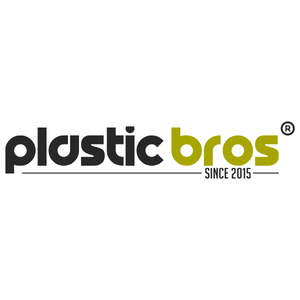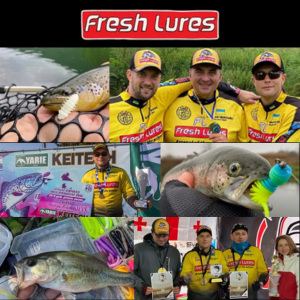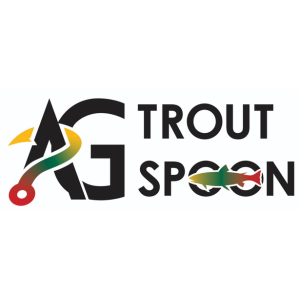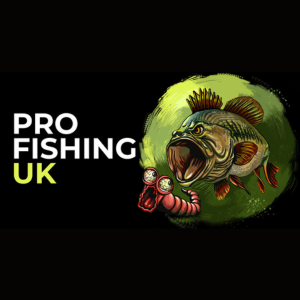OUR STORY
Hello, dear friends! The story of our group and the International Fishing Club Rybaki UK started seven years ago. At first, I just wanted to bring together people who love nature, sitting by a campfire, fishing, cooking fish soup, and taking a break from the busy city life—just like I do. We started with 11 members, and we went fishing in different places around the UK. Now, our Facebook group has grown to about 2,700 people. Of course, not everyone is an active member or fisherman, but it’s clear that our community has grown a lot. I want to keep growing, organize more competitions, and achieve more together. I’m sure we can do it!
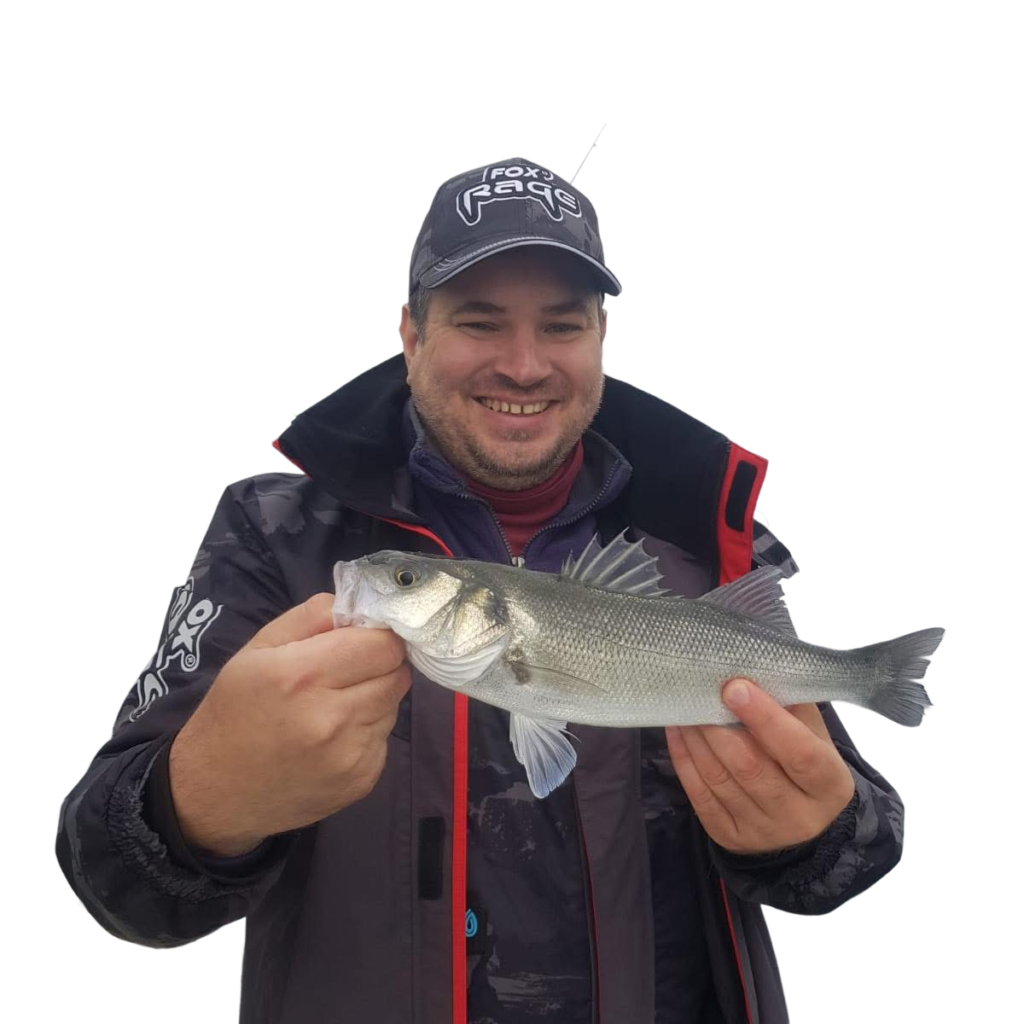
Alexey Firsanov
OUR PARTNERS
6 PREDATORS CHALLENGE
TOP 3 LEADERS BOARD
On July 5, 2025, the results of one of the most challenging competitions, known as the 6 Predators Challenge, will be announced. The essence of this competition lies in participants having to catch six main predator fish species over the course of a year: perch, salmon, trout, pike, zander, and seabass. This competition demands significant effort, skills, knowledge of various types of water bodies, and physical endurance. Throughout the year, no one knows who will take the top three spots. Want to test yourself? There's still time to join the competition!
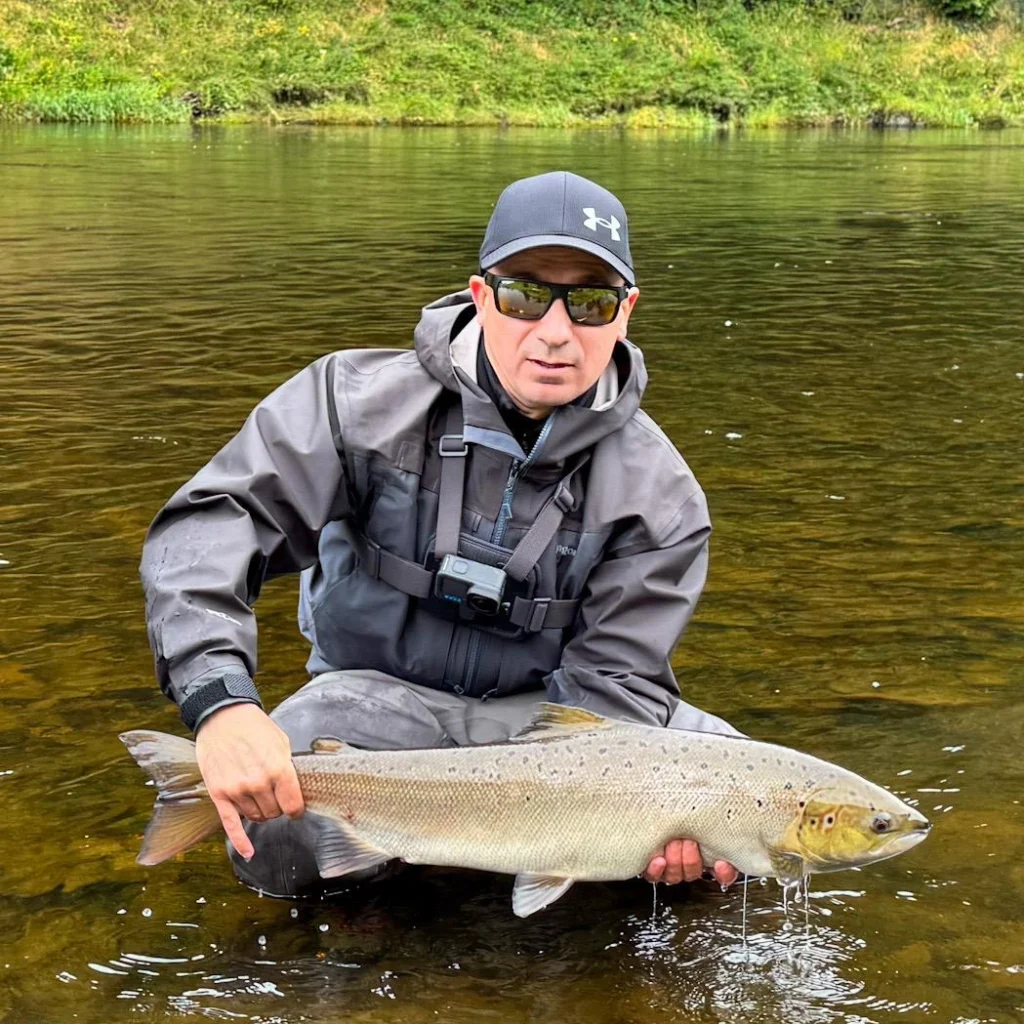
2ND PLACE
VITALIJ KOVALYSIN
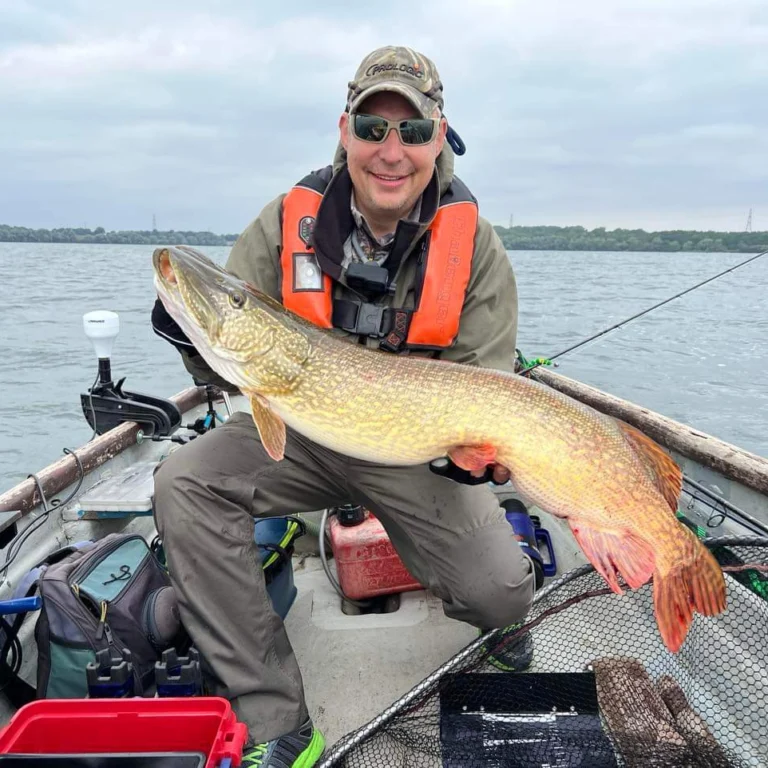
1ST PLACE

3RD PLACE
TOMAS NOKONOROVAS
Your questions answered
GOOD TO KNOW
DO I NEED FISHING LICENSE IN THE UK?
Yes, in the UK, you generally need a fishing license to fish in freshwater (rivers, lakes, and canals). Here’s what you need to know:
When Do You Need a Fishing License?
For freshwater fishing (rivers, canals, lakes, reservoirs) using a rod and line.
If you’re fishing for salmon, trout, freshwater fish, smelt, or eels in England and Wales.
In Scotland and Northern Ireland, the rules vary (see below).
Where to Get a Fishing License?
In England and Wales, you can buy it online via the UK Government website: Gov.uk – Rod Fishing Licenses
In Scotland, you don’t need a general fishing license, but you must have permission from the landowner.
In Northern Ireland, you need both a rod license and a permit.
As of February 2025, the cost of fishing licenses in England and Wales has increased. Here are the current fees:
Trout and Coarse Fishing Licenses:
1-day: £7.10
8-day: £14.30
12-month (up to 2 rods): £35.80
12-month (3 rods): £53.70
Salmon and Sea Trout Fishing Licenses:
1-day: £13.20
8-day: £29.70
12-month: £90.40
Concessionary Licenses:
12-month (66 or over or disabled, up to 2 rods): £23.80
12-month (66 or over or disabled, 3 rods): £35.80
12-month (66 or over or disabled, salmon and sea trout): £60.20
Junior Licenses (13 to 16 years old): Free (but still required)
These updated fees are in effect as of April 1, 2024.
GOV.UK
Please note that fishing without a valid license can result in a fine of up to £2,500. Licenses can be purchased online through.
PLEASE VISIT THIS SITE TO PURCHAICE YOUR LICENSE
Buy a rod fishing licence: Buy a rod fishing licence for England and Wales – GOV.UK
FISHING SEASON IN THE UK
Fishing Seasons in the UK
Fishing seasons in the UK vary depending on the species, type of water (freshwater or saltwater), and regional byelaws. Below is a breakdown of the main fishing seasons for coarse fish, game fish (salmon & trout), and sea fishing.
Freshwater Fishing Seasons
Coarse Fishing
- Closed Season (Rivers & Streams Only): March 15 – June 15
- Coarse fishing is banned in all rivers, streams, and some canals in England & Wales during this period.
- Stillwaters and private fisheries remain open for coarse fishing year-round.
- Open Season: June 16 – March 14
- Allowed for species like carp, perch, pike, bream, tench, chub, and roach.
Game Fishing (Salmon & Trout)
- Salmon Fishing Season:
- Scotland: January – October (varies by river)
- England & Wales: February – October (depends on region)
- Different rivers have different opening and closing dates. Always check local byelaws.
- Brown Trout Season:
- March 15 – October 6 (England & Wales)
- March – October (Scotland)
- Some waters allow fishing for brown trout later in the year, depending on regulations.
- Rainbow Trout Season:
- No official closed season as most rainbow trout fishing occurs in stocked fisheries, which are open year-round.
Sea Fishing Seasons
Unlike freshwater fishing, sea fishing does not have a closed season, but some species have regulated periods for conservation:
- Bass:
- Closed season: February 1 – March 31 (only catch-and-release allowed)
- Open season: April 1 – December 31 (maximum 2 fish per day, minimum size 42 cm)
- Cod:
- Best fishing: October – March
- Certain areas have conservation measures during spawning season.
- Mackerel:
- Peak season: May – September
- Available along most UK coasts in summer.
- Tope & Shark Species:
- Catch-and-release only due to conservation regulations.
- Sea Trout:
- Season varies by region but generally April – October.
Special Regulations & Permits
- Rod Fishing License Required:
- Needed for salmon, trout, and coarse fishing in England & Wales.
- Can be purchased via Gov.uk.
- Local Byelaws Apply:
- Each region (England, Wales, Scotland, Northern Ireland) may have specific rules and season dates for different rivers and lakes.
- Check with local angling clubs or fisheries before fishing.
Key Takeaways
✔ Coarse fishing on rivers is banned from March 15 – June 15.
✔ Salmon and trout seasons vary by location – always check regional rules.
✔ Sea fishing has no closed season, but species like bass and cod have restrictions.
✔ Stillwater fisheries remain open year-round for coarse and trout fishing.
WHAT FISH I CAN TAKE HOME?
What Fish Can You Take Home in the UK?
In the UK, there are strict rules on keeping fish after fishing. You cannot take any fish home unless they meet specific size, species, and daily bag limit regulations.
Fish You Can Take Home
Allowed to Keep:
Up to 15 coarse fish per day (except grayling), but only if each fish is under 20cm long.
Up to 2 grayling per day, with a size between 30cm and 38cm (England & Wales).
1 pike per day, only if it is under 65cm long.
Up to 2 brown or rainbow trout per day.
Not Allowed to Keep:
Salmon and sea trout – must always be released.
Any coarse fish over 20cm (except pike within its size limit).
More than 15 fish per day.
Any fish from private waters, unless the owner allows it.
Size Limits (England & Wales)
Coarse fish (roach, bream, perch, etc.): Only under 20cm (max 15 per day).
Grayling: Only between 30cm and 38cm (max 2 per day).
Pike: Up to 65cm (max 1 per day).
Brown and rainbow trout: No size limit (max 2 per day).
⚠ Important: Local rules may vary, so always check regional byelaws for specific rivers and lakes.
Rules for Sea Fishing
Saltwater fishing has different regulations, including minimum landing sizes and catch limits for many species.
Some species, like bass, have closed seasons and can only be caught at certain times of the year.
Protected species, such as sharks, skates, and rays, must be released.
For up-to-date regulations in your area, check the Environment Agency website or local fishery guidelines.
SEA FISHING RULES IN THE UK
Minimum Fish Sizes and Catch Restrictions in the UK (Sea Fishing)
In the UK, sea fishing is subject to minimum size limits for certain species, as well as restrictions on catching specific fish like salmon, sea trout, and bass.
Minimum Fish Sizes for Sea Fishing (England & Wales)
Here are the minimum legal sizes for some commonly caught sea fish:
Bass (Sea Bass) – 42 cm
Cod – 35 cm
Herring – 20 cm
Mackerel (North Sea) – 30 cm
Halibut – 27 cm
Sole – 24 cm
A full list of minimum sizes can be found on the Kent & Essex IFCA website.
Restrictions on Certain Species
Salmon and Sea Trout:
A special license is required to catch these fish in marine waters.
In England & Wales, even if fishing in the sea up to 6 miles offshore, you must have a migratory fish license.
More details: World Sea Fishing.
Sea Bass (European Bass):
Seasonal restrictions apply.
From February 1 to March 31, only catch-and-release fishing is allowed.
From April 1 to December 31, anglers can keep up to 2 bass per day, provided they are at least 42 cm long.
More details: North Western IFCA.
Where to Check the Latest Rules
Fishing regulations change frequently to protect fish stocks. Always check for updates before going fishing:
Marine Management Organisation: UK Sea Fisheries Regulations.
Local Inshore Fisheries and Conservation Authorities (IFCAs): Regulations differ by region.
Following these rules helps protect fish populations and the marine ecosystem.
Would you like help finding fishing rules for a specific location?
WHERE TO CATCH SALMON?
Scotland
Dunkeld and Birnam Angling Association https://www.dunkeldandbirnamangling.co.uk
Grantown Angling Association https://www.grantownangling.co.uk
Aberdeen and District Angling Association: https://www.adaa.org.uk
Kelso Angling Association: https://www.kelsoangling.co.uk
Dumfries and Galloway Angling Association: https://www.river-nith.com
Wales
Wye and Usk Foundation: https://www.wyeuskfoundation.org
Usk Fishing Association: https://www.uskfishing.org.uk
Carmarthen and District Angling Club: https://www.carmarthenangling.org.uk
Teifi Trout Association: http://teifitrout.co.uk
Corwen and District Angling Club: https://www.corwenanddistrictanglingclub.co.uk
England
Tyne Rivers Trust: https://www.tyneriverstrust.org
Penrith Angling Association: https://www.penrithanglers.co.uk
Durham City Angling Club: https://www.durhamcityanglingclub.co.uk
Lune Rivers Trust: https://www.luneriverstrust.org.uk
Ribble Rivers Trust: https://ribbletrust.org.uk
FISHING SPOTS
The United Kingdom offers a diverse array of fishing spots, catering to both novice and experienced anglers. Here are some notable locations across the country:
1. River Wye, Herefordshire
Renowned for its scenic beauty, the River Wye is a prime location for barbel and chub fishing. Its tranquil settings make it ideal for a relaxing fishing experience.
2. Blenheim Palace, Oxfordshire
Beyond its historical significance, Blenheim Palace offers managed fishing lakes, particularly known for pike fishing. Anglers can enjoy the serene environment while fishing in well-stocked waters.
3. Redmire Pool, Herefordshire
Esteemed among carp anglers, Redmire Pool is a historic fishing spot celebrated for record catches. Securing a spot here is a coveted experience for many fishing enthusiasts.
4. River Tweed, Scotland
Flowing through the Borders, the River Tweed is one of Scotland’s most famous salmon rivers. Anglers from around the world visit to experience its prolific salmon runs.
5. Lake Windermere, Cumbria
As England’s largest natural lake, Windermere provides opportunities for pike, trout, and perch fishing amidst the stunning backdrop of the Lake District.
6. River Lea, Hertfordshire
A tributary of the Thames, the River Lea offers urban fishing opportunities, with species like pike, perch, and carp commonly found in its waters.
7. Great Yarmouth, Norfolk
This coastal town provides excellent sea fishing opportunities. Anglers can fish for species like cod, bass, and mackerel from the piers or charter boats.
8. Brighton, Sussex
Known for its vibrant seaside atmosphere, Brighton offers both shore and boat fishing. Common catches include plaice, bream, and mackerel.
9. Drayton Reservoir, Northamptonshire
A favorite among carp anglers, Drayton Reservoir is stocked with a significant number of carp, some reaching impressive sizes. It’s an excellent spot for both beginners and seasoned fishermen.
10. Yateley Complex, Hampshire
This series of fishing lakes offers a variety of species, including carp, bream, and pike. Each lake has its unique characteristics, catering to different angling preferences.
Before planning your trip, it’s advisable to check local regulations, obtain necessary permits, and confirm any access requirements. Local angling clubs and associations can provide valuable information and support to enhance your fishing experience.
BOAT REGISTRATION
In the United Kingdom, the requirement to register your Soft Inflatable Boat (SIB) depends on where you intend to use it:
Inland Waterways:
- Registration Required: If you plan to operate your SIB on inland waterways such as rivers, canals, and certain lakes, registration is typically mandatory. Authorities like the Canal & River Trust oversee these areas and require all boats, regardless of size or propulsion method, to be licensed. This includes motorized boats, as well as unpowered craft like canoes, kayaks, and paddleboards.
Coastal Waters and Open Sea:
- Registration Not Mandatory: For recreational use in coastal waters and the open sea, registering your SIB is generally not a legal requirement. However, voluntary registration through the Small Ships Register (SSR) is available. While optional, SSR registration can be beneficial, especially if you plan to sail abroad or require proof of ownership.
Additional Considerations:
- Local Regulations: Always verify local rules and regulations before launching your SIB, as some areas may have specific requirements or restrictions.
- Insurance: While not legally required, obtaining insurance for your SIB is advisable. Some launch sites or marinas may mandate proof of insurance, and it provides financial protection against potential damages or liabilities.
- Safety Training: Consider enrolling in a recognized boating safety course, such as the Royal Yachting Association’s (RYA) Powerboat Level 2 course. This training enhances your boating skills and knowledge, promoting safer navigation.
By adhering to these guidelines and staying informed about local regulations, you can enjoy your SIB safely and responsibly across the UK’s waterways.
- Inland Waterways Registration (Canal & River Trust)
- UK Small Ships Register (SSR) – For Coastal & International Use
- Website: https://www.gov.uk/register-a-boat
- Environment Agency Boat Registration (Rivers like Thames, Medway, etc.)
- Royal Yachting Association (RYA) – Boating Safety & Training
- UK Maritime and Coastguard Agency (MCA) – Boat Regulations & Safety
BOAT INSURANCE
Do I Need Insurance for My SIB Boat in the UK?
In the United Kingdom, insuring your Soft Inflatable Boat (SIB) is not legally mandatory. However, obtaining insurance is highly recommended for several reasons:
- Third-Party Liability Insurance
Accidents on the water can happen, and if your SIB causes damage to another vessel, property, or injures someone, you could be legally liable.
- Third-party liability insurance covers legal fees and compensation claims in such scenarios.
- Many inland waterways and marinas require proof of at least £1 million in third-party liability coverage before allowing access.
More details: https://www.quotezone.co.uk/boat-insurance/inflatable
- Theft and Damage Protection
Since SIBs are lightweight and portable, they are at risk of theft or damage. Comprehensive insurance policies can protect you against:
✔ Theft
✔ Accidental damage
✔ Fire and vandalism
✔ Loss due to natural disasters
For example, Insure4Boats offers policies that cover theft, loss, accidental damage, and third-party liability.
More details: https://www.insure4boats.co.uk/sib-insurance/
- Access to Launch Sites
Some council-run slipways and launch sites require boat owners to have valid insurance before using their facilities.
For example, in North Wales, councils mandate a minimum indemnity of £3 million for powered boats to access their slipways.
More details: https://turnerstackle.co.uk/boat-insurance/
Insurance Providers for SIB Boats in the UK
Here are some insurers that specialize in SIB coverage:
- Insure4Boats – Offers tailored policies for SIBs, including Boat (Hull & Machinery) and Third-Party Liability coverage.
- Craftinsure – Provides comprehensive cover for small motorboats and SIBs, including loss or damage from various risks and up to €5,000,000 third-party cover.
Conclusion
✅ While not legally required, insurance for your SIB offers financial protection and peace of mind.
✅ Some waterways and launch sites require third-party insurance.
✅ Choose an insurer based on your boat usage and risk factors.
BOAT LICENSE
Do I Need a License for My SIB Boat in the UK?
In the United Kingdom, the requirement to license your Soft Inflatable Boat (SIB) depends on where you intend to use it:
Inland Waters (Rivers, Canals, and Lakes)
Licensing Requirement:
All boats, including SIBs, must be registered or licensed to operate on inland waterways. This applies to both motorized and unpowered vessels.
Canal & River Trust (For canals & some rivers):
https://canalrivertrust.org.uk/boating/license-your-boat
Navigation Authorities:
Different waterways are managed by various authorities, such as the Canal & River Trust or the Environment Agency. It’s essential to contact the relevant authority to obtain the appropriate license.
Find Boat License Information on GOV.UK:
https://www.gov.uk/register-a-boat-in-england
Broads Authority (For Norfolk & Suffolk Broads):
https://www.broads-authority.gov.uk/boating/facilities/registration
Scottish Canals (For waterways in Scotland):
https://www.scottishcanals.co.uk/boating/boating-passes/
Natural Resources Wales (For Welsh rivers & lakes):
https://naturalresources.wales/permits-and-permissions/boat-registration/
⚠ Note: Some lakes and private waters may require a separate permit from the local authority or landowner.
Coastal Waters and Open Sea
✔ Licensing Requirement:
There is generally no legal requirement to license or register recreational boats, including SIBs, when used in coastal waters or the open sea.
However, voluntary registration with the Small Ships Register (SSR) is available and can be beneficial, especially if you plan to sail abroad or require proof of ownership.
UK Small Ships Register (SSR) – Optional Registration:
https://www.gov.uk/register-a-boat
Additional Considerations
✔ Insurance:
While not legally required, obtaining insurance for your SIB is highly advisable. Some marinas and launch sites require proof of insurance, and it provides financial protection against potential damages or liabilities.
Recommended Insurers:
- Insure4Boats: https://www.insure4boats.co.uk/
- Craftinsure: https://www.craftinsure.ie/
✔ Safety Regulations:
Regardless of licensing requirements, all boat operators must adhere to safety regulations, which may include carrying specific equipment (life jackets, flares, navigation lights) and following navigation rules.
Royal Yachting Association (RYA) Boating Safety & Training Courses:
https://www.rya.org.uk/training/courses/powerboat
✔ Local Byelaws:
Always check for local regulations or byelaws that may impose additional requirements or restrictions in certain areas.
UK Maritime and Coastguard Agency (MCA) Regulations:
https://www.gov.uk/government/organisations/maritime-and-coastguard-agency
Key Takeaways
✅ A boat license is required for inland waterways (rivers, canals, lakes).
✅ No license is needed for sea use, but voluntary registration is available.
✅ Check local rules before launching.
✅ Insurance and safety equipment are highly advisable.
PUBLIC SLIPWAYS
The United Kingdom offers numerous public slipways for launching various types of watercraft, including trailered boats, canoes, and paddleboards. Here are some notable locations:
1. River Hamble, Hampshire
The River Hamble provides four public slipways:
Warsash Slipway: Located at Shore Road, Warsash, SO31 9FR. Suitable for larger vessels with quick access to Southampton Water and the Solent.
Hamble Slipway: Situated at The Quay, Hamble, SO31 4HB. Ideal for launching RIBs and motor vessels.
Swanwick Slipway: Found on Swanwick Shore Road, Swanwick, SO31 7EF. Perfect for kayaks and canoes exploring the upper reaches of the river.
Lands End Slipway: Located at Lands End Road, Bursledon, SO31 8DN. Suitable for dinghies, kayaks, and small craft.
For more details, visit:
2. Plymouth, Devon
Plymouth City Council manages several slipways:
Commercial Wharf Slipway: Best for sailing dinghies, canoes, and small craft.
Elphinstone Slipway: Suitable for most small boats, including those launched from trailers.
Mount Batten Main Slipway: Accommodates various vessels, including towed ones.
Oreston Slipway: Accessible for boats launched from trailers.
Additional information is available at:
3. The Broads, Norfolk and Suffolk
The Broads Authority provides an interactive map of slipways and launching points in the Broads area. Note that many are privately operated.
Explore the map here:
4. River Thames
Numerous public slipways are available along the River Thames. The Electric Boat Association offers a list detailing these locations.
Find more information at:
5. Christchurch Harbour, Dorset
Several slipways are available for launching boats and tenders within Christchurch Harbour and its feeding rivers.
Details can be found here:
6. Trailerhelling.com
For a comprehensive overview of slipways across the UK, Trailerhelling.com offers an interactive map where users can find, add, or review slipways.
Access the map at:
General Tips:
Preparation: Ensure your vessel and equipment are ready before using the slipway to avoid delays.
Safety: Wear appropriate footwear to prevent injuries from sharp objects.
Parking: Be mindful of parking regulations and avoid obstructing the slipway.
Tides and Weather: Always check local tidal conditions and weather forecasts before launching.
By adhering to these guidelines and utilizing the resources provided, you can enjoy a safe and efficient experience when launching your watercraft in the UK.
THERE YOU CAN FIND USEFULL MAP FOR ALL PUBLIC SLIPWAYS IN THE UK: https://www.boatlaunch.co.uk/
OUR NEWS
Hooked on the best moments!
Every catch tells a story. Be part of it! Connect with fellow anglers, compete in exciting challenges, and create unforgettable memories. Get started now!
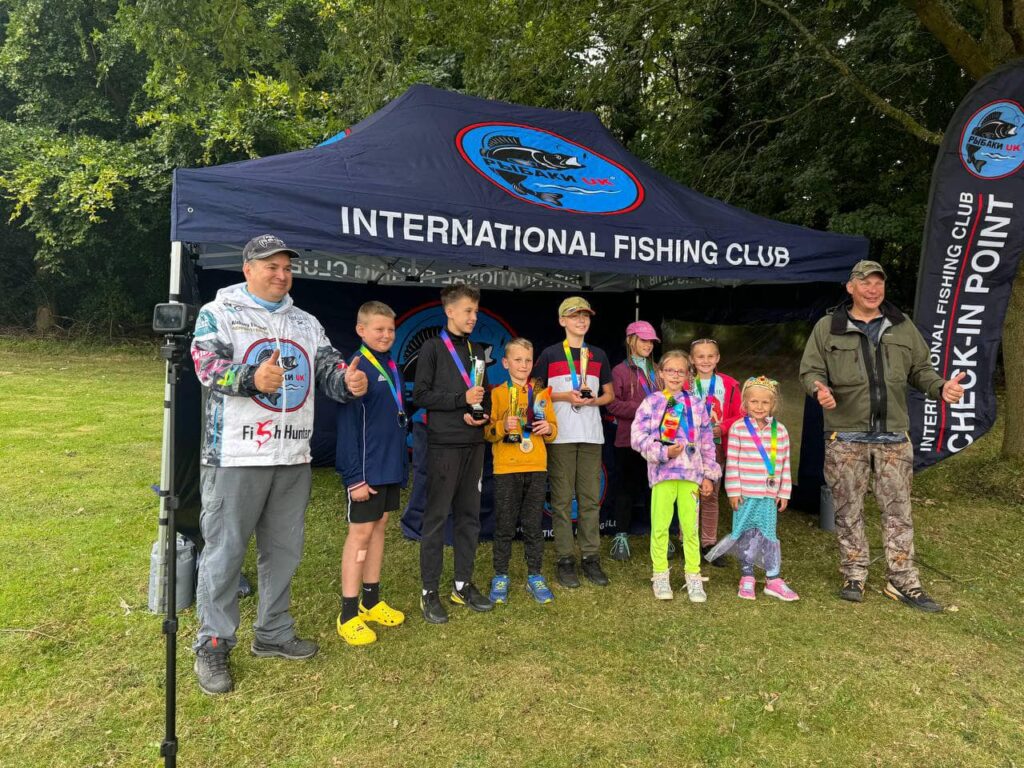
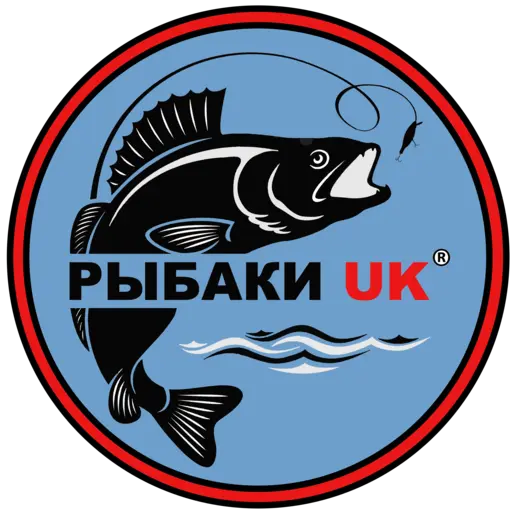
a club for those who live and breathe fishing! Competitions, friendship, and adventures – it’s all here. Join us!
- [email protected]
- +447919944249
- Mon-Fri 9:00AM - 5:00PM
Web design by @lex © All Rights Reserved.

